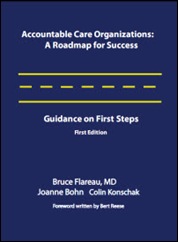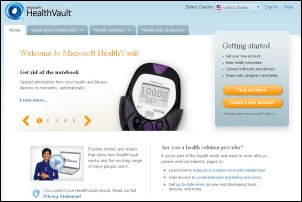Thank you for the mention, Dr. Jayne — we appreciate the callout, the kind words and learning more about the…
Monday Morning Update 2/14/11
From Neal’s Deal: “Re: Cerner deal. The academic medical center referred to in the Q4 earnings call is USC University Hospital. It is somehow fitting that UCLA picked Epic and USC picked Cerner.” Unverified. It was amusing that Cerner bragged to investment analysts that it beat Epic in one deal. It’s a good win for Cerner, but then again Epic has had many good wins over Cerner lately. Competition is good for everybody.
From Held Hostage: “Re: Meditech. I have heard from multiple sources that they’re telling customers they must buy all modules to meet Meaningful Use under their certification as a Complete EHR. If you use third-party CPOE, for instance, you would have to replace it with Meditech’s because you don’t have the Complete EHR. Any comments or evidence supporting or refuting this theory would be helpful.” I posed your question to a Meditech spokesperson, who provided this official response: “The specific wording of this specific Comment below is not accurate.” Also, this is not likely a question limited to Meditech – the whole “Complete EHR” thing is getting people confused about what it means and whether it makes sense.
From Frank Poggio: “Re: certification. The certification/MU system is extremely biased towards full EHR vendors. Best-of-breed vendors and suite vendors can be left out. If your certified ‘full EHR’ (read: single vendor) generates the MU quality data, you are OK. But if you use other systems, such as a best-of-breed lab, pharmacy, registration, etc, then if that component is going to dump data to your data warehouse and it is used for MU reporting, that best-of-breed system must be certified. If it is not, and you pass the data to your EHR (which is certified), you are OK. Anyone that has been in the business as a best-of-breed vendor knows those big EMR guys just love to cooperate with the little folks! The moral: if you’re a best-of-breed provider, you’d better get certified as an EHR Module.”
From Voidal: “Re: El Camino Hospital CEO. Dispenses with the lame ‘spending time with family’ excuse and flat out says he’s leaving because the board said so. He had quite a run: the Eclipsys pharmacy system fiasco, Microsoft snow job, Taj Mahal building project, and fierce local competition.” Ken Graham’s three-sentence announcement says his contract will end without cause at the request of the board.
From Doolittle: “Re: [vendor name omitted]. Obliterating their US sales operations. Their executive leader has been ‘reassigned,’ 20% of the management has elected to leave or been asked to, and a full 50% of the Client Executives (fully responsible for hospital/IDN relationships) are no longer there. Many of the 20-plus year veterans are gone as well. Bigger changes are expected in April. Loss of revenue, non-existent new business sales, the huge [product name omitted] failure … the house of cards is finally tumbling down. As a former employee, I took a new position within the past year when the writing was on the wall …it’s now on billboards in neon!” Unverified. I invited the company to comment; they have not responded so far. I’ll leave their name off for now just in case their response is forthcoming, but surely you can guess who it is. They could be gearing up to unload the operation by cutting costs short-term, but that’s just speculation. Otherwise, whacking the sales operation is eating the seed corn.
From The PACS Designer: “Re: cloud predictions. InformationWeek’s Charles Babcock has cloud predictions for 2011 and what the major players are doing to get a piece of the cloud business. Pioneers Amazon and Google are now facing challenges from the telecoms, mainly AT&T and Verizon, for a share of the cloud offerings to institutions who want to expand communications beyond their data centers.”
Listening: new from Motorhead, punk metal with a croaking 65-year-old singer who’s even less musically gifted than AC/DC’s Brian Johnson. It still kicks, though. Newly added to the gym iPod: jangle from REM and Gin Blossoms.
Happy Valentine’s Day to everyone. Guys, if you haven’t yet invested in picked-over and overpriced flowers, a sappy card with prose penned by a hack novelist wannabe, and maybe a dinner reservation knowing that even great restaurants will throw quality to the wind in favor of high-margin V-Day turnover, then this is your early warning system to man up. Sure, it’s a Hallmark holiday, but if you could spend that same couple of hundred dollars and get an EMR with an equally impressive ROI, you’d own several. Monday is the lightest HIStalk night where I work only 4-5 hours after coming home from the hospital, so I am prepared with a piece of jewelry, some of Mrs. HIStalk’s favorite dark chocolate covered cherries (the cheap Walgreens kind she likes), and a little heart-wearing stuffed bear (also from Walgreens) that plays I Can’t Help Myself (Sugar Pie, Honey Bunch) by the Temptations when you poke his stomach. Yes, I am quite the catch.
One possible hitch in Monday’s VD plans: a vendor asked me to interview their CEO and that of another vendor as an exclusive prior to a Tuesday morning announcement, which I obviously have to do after I get home from work since the hospital doesn’t pay me to interview CEOs. If you aren’t signed up for e-mail updates, now’s a good time.
There’s no clear conclusion about the PCAST report, it seems. New poll to your right: I asked you last week to suggest a replacement for David Blumenthal at ONC, so this week’s poll lets you choose from the most-nominated individuals. Click Comments on the poll to bolster your argument. Chances are small that your vote will influence the outcome, but still higher than the zero percent chance inherent with not voting at all. Thanks to those who nominated me. I’ll respectfully decline since I’m anti-HITECH, I don’t trust politicians or the federal government, and Washington traffic is horrendous.
Thanks to everyone who filled out my annual reader survey. Thanks to everyone else for considering clicking the link and doing it now.
It’s always busy around here right before HIMSS, which means I don’t get much sleep for a couple of months. It calms down right after. Until then, please indulge me as I introduce some new sponsors. I don’t solicit sponsors and I don’t want to inundate you with announcements about new ones, but their unsolicited yet appreciated participation is a reflection of you as a reader, a desirable audience they want to reach.
New Platinum Sponsor Besler Consulting is a consulting firm focusing on healthcare finance and operations. It offers services related to observation management; Medicare / Medicaid appeals and regulatory analysis; cost report preparation; IME/GME analysis; revenue cycle; managed care contract review; physician billing and practice analysis; coding, documentation, and compliance; accreditation and certification readiness; and strategic and operational planning. More specifically on the software side, the company will be rolling out two new solutions this year: BVerified Screening and Verification (automated screening of employees, caregivers, contractors, and vendors against federal and state databases of fraud and abuse convictions) and BVerified Revenue Integrity Auditor (reporting of uncovered revenue opportunities). Thanks to Besler Consulting for supporting HIStalk.
Intelligent Medical Objects of Northbrook, IL is supporting HIStalk as a Platinum Sponsor. The company’s tagline is “Providing common ground for health vocabularies,” which it does by offering terminology mapping to EMR vendors for their applications (ICD, SNOMED, HCPCS, RxNorm) and vocabulary products for helping healthcare organizations support interoperability. The IMO iHealth Search is a search portal for EHR systems, a sophisticated knowledge search engine that translates clinician terminology to generate superior search results. IMO offers a free, voice-powered iPhone app that allows physicians to find problem and diagnosis codes by speaking clinician-friendly terms into their phones. A customer quote about their similarly clinician-friendly EMR-based lookups: “When we added the IMO diagnosis look-up feature to our templates, the positive response was overwhelming. Many physicians said it was the best thing we ever did for them!” They have some cool demos on their site, but probably some even cooler ones at HIMSS in Booth 3517. I appreciate the support of HIStalk and its readers by Intelligent Medical Objects.
Stimulus Search (love the name) is a brand new HIStalk Gold Sponsor. If you’re a healthcare software and services company in the hospital, payer, or physician practice markets and are looking for top sales and support people, get in touch with recruiting guru Dan Moriarty down in the New Orleans area. His firm can help vendors find niche talent, such as HIE, EHR, revenue cycle, RFID, PACS, CPOE, and HIM. There’s a long list of testimonials on the site. Dan will even lend his expertise to candidates interested in furthering their career objectives. Take Dan’s six-question survey about recruiting methods that do and don’t work and he will share the results. Thanks to Stimulus Search for its support of HIStalk.
Joining our august assemblage as a Platinum Sponsor is HT Systems of Tampa, FL, which you may know better as the PatientSecure folks. A couple of months ago, I gave a brief mention of a hospital (I think it was Carolinas HealthCare, but I’m not sure) implementing its palm vein recognition system and I stuck in a small photo. That generated quite a bit of interest among readers, and apparently the company’s interest in HIStalk. PatientSecure identifies people by scanning their palms, with their unique vein patterns being 100 times more accurate than a fingerprint (and free of the “you’re not taking MY fingerprints” stigma that I can say from personal experience is vexing to IT people trying to roll out finger-based biometrics). Registration people don’t need to manually look up patients or hope they’re who they say and not some nice but uninsured neighbor borrowing their insurance card – the patient puts their hand on the scanner and their files are instantly brought up in the registration application. The result is positive patient identification, no more duplicated medical records to be merged later, faster customer service, and integration with existing systems (and across systems – a patient set up at the hospital can be scanned in a physician’s office). Thanks to HT Systems / PatientSecure for supporting HIStalk.
CPSI announces that three of its hospital customers have received HITECH checks. CEO Boyd Douglas says, “There are still hospitals on the fence about doing this, wondering whether they’ll really get the money. This serves as proof that the money is flowing.”
ONC lame duck David Blumenthal is still defending EMRs and bashing critical studies, but he’s maybe getting a little crankier or less PC about it on his way out the door, which I rather like, actually. He reminds an audience that recession-hammered Americans involuntarily chipped in $27 billion to buy technology that providers “could have adopted by themselves but they didn’t. We are handing over tens of thousands of dollars to doctors and millions of dollars to hospitals to do something that you may hear them say is a burden and an obligation and a mandate … If you look at this from the standpoint of the average voter and the taxpayer, this is a big, big subsidy to a profession that on average earns considerably more than the average American.” All good reasons not to have done it, but unless the Republicans get an unlikely long lasso, that horse left the barn long ago with DB whipping its hindquarters.
TELUS signs agreements with three Canadian EMR vendors to use TELUS Health Space, powered by Microsoft HealthVault, in consumer health pilots that will target six million Canadians. The Canadian telecommunications company also reports Q4 numbers: revenue up 4.4% to $2.55 billion, EPS $0.70 vs. $0.49.
I’m still getting HIMSS spam at work, but here’s another gripe: I keep getting friendly-sounding “invitations” to events that aren’t free. Is it really an “invitation” to have breakfast with some magazine if I have to pay? Why would I want to do that?
Confirmed: the IngaTinis will indeed be flowing at the SIS booth (#5963) at HIMSS, Monday from 4:00 to 5:30 p.m. (“a fun pre-game for the HIStalk reception,” Inga was reminded by a fun SIS’er). I was talking to SIS CEO Ed Daihl today and he joked that he’s sorry they didn’t copyright the name last year, so at least I can give them credit for the idea.
Authors of a new book on ACOs: Bruce Flareau MD (CMIO, BayCare, FL), Joanne Bohn (founder, Clinical Horizons, Inc.), and Colin Konschak (managing partner, DIVURGENT). Speaking of DIVURGENT, they announce their Activate! activation management services.
Inga has spend a huge amount of time putting together a couple of pre-HIMSS pieces. She asked our sponsors what they will be doing at HIMSS (the page is here, or a downloadable PDF here). As a bonus, several of them have set aside extra-special giveaways that are only for HIStalk readers (she includes the secret code words). And on HIStalk Practice, she got some fascinating answers in latest installment of her executive question series, where dozens of vendor executives predict the hot topics at the HIMSS conference. That one’s definitely a fun read. Nobody can do this as well as Inga – the quantity and quality of the responses is amazing.
The Columbus paper covers the use of scribes by a company that contracts out ED physician staffing. It also quotes a dermatologist who says his EMR use was interfering with his patient relationships before he hired a scribe. “I’m able to go in and have good eye contact, be empathetic and not have to type. It’s difficult to type and look at moles at the same time.” An interesting and easy study would be to take the same doctors and patients, with and without the doctor interacting with the EMR in the exam room, and measure the patients’ perceptions about the encounter and the doctor. I still say it’s more about technique and physical placement of the computer than anything else.
IT outsourcer PHNS changes its name to Anthelio. There’s a long and unconvincing explanation about the origins and inspiration behind the lawsuit-unlikely name and the whole “new commitment, new focus” blah blah. Apparently the entire business and vision was being held back by having a pronounceable and simple name like PHNS, forcing a deep dive into the dictionary to turn things around.
An eight-physician primary care practice in Cincinnati says it’s considering joining a hospital system specifically because it needs an EMR that it estimates will cost $250K. “I’m a business owner who needs an electronic medical record. If it were not for EMR, I would not consider it.” That’s an unintended consequence of HITECH – killing off independent practices and letting high-profit hospitals integrate vertically, which doesn’t exactly foster price-lowering competition or provide benefit to the patient-widget (not to mention that it spreads rampant hospital inefficiency and bureaucracy).
Grady Hospital (GA), trying to offset a $25 million reduction in indigent care payments from the state, will cut contractors brought in to implement its $40 million Epic EMR. That might be a portent of healthcare reform: a tanking hospital somehow scrapes up $40 million to buy an EMR, but now can’t even afford the people needed to get it running.
Ness County Hospital (KS) chooses the ChartAccess EHR from Prognosis Health Information Systems.
Sutter and UC Davis will share their electronic health records.
Microsoft will announce new HealthVault features at HIMSS: a Getting Started wizard, the ability for users to authenticate their account by telephone, a single landing page, integrated Blue Button support to allow users to download their health information from various government sources and then upload it into HealthVault, and the ability for developers to set event notification for changes to an individual’s information.
I got a couple of invitations to some interesting conferences this week, include one to speak to a big group of venture capitalists, private equity people, and corporate types. Folks are so nice to offer and I really appreciate it, although the challenges of finagling time off at work means I always decline. As for speaking, anything interesting or insightful that pops into my head is right here on HIStalk, so I’d just be recycling anyway.
HHS is supposed to be unveiling a new site soon that will put into motion CTO Todd Park’s plan to open up HHS’s extensive healthcare databases to third-party developers to create value-added applications. Todd’s example is usually the government’s trove of real-time weather data, used by a plethora of companies to create new uses for it and make the information more publicly useful. Todd’s in the above video and talks about HealthData.gov at the 1:30 mark, saying it was supposed to launch in December, which apparently didn’t happen.
New York’s Health and Hospitals Corp. admits that the health records of 1.7 million of its patients were stolen in December when unknown thieves took backup tapes from an unlocked van belonging to its medical records vendor, GRM Information Management Services.













Todd Park wants to be transparent about everything except his own screw-ups. His stint in the government has been a pretty resounding thud.
Hospitals define meaningful use not the vendors of certified technology. Vendor certification requirements vs. hospital meaningful use criteria are not directly related nor do they have a 1:1 relationship. That is, just because Meditech, or another vendor, chooses to certify as a complete EHR rather than an EHR module, doesn’t mean or imply that hospitals have to use every component that the vendor certified on. Hospitals are in control of what functionality they use, and provided they meet the use requirements using certified technology, they are eligible for the dollars. Hospitals can use one vendor or 20. Nothing confusing about it. This is just the big vendors’ attempt to confuse and strong-arm their customers into not using anything outside of their product suite.
I like the poll you have going for the next ONC director and Dr. Halamka gets my vote hands down as he’s about the only one out there that is not only extremely intelligent, but he’s a hands on guy that takes time to communicate, and I just don’t see that coming from most others, and he applies gadgets and technologies as they would and do appear in real life.
Maybe I sometimes expect too much but I do wonder how many of the experts in Health IT take time out to at least fiddle around with the consumer products, like PHRs and how many actually use one as I see these for everyone, right? Having some first hand experience could certainly stand to reduce some of the reports that are generated I think.
I think HHS, Congress and many others for that matter are missing the boat here with social networks on speaking out and being role models for the rest of us as I seem to think we have this paradigm of “its for those guys over there” taking precedence. It seems there’s a big shortage of with few experts sharing their experience on the web, along with some likes and dislikes.
On a demented side of my thoughts I would love to see a few sessions of Congress with all members connected to devices, like a Fitbit for example trying to go about their business of law making on the floor and then at the same time, respond and communicate to a series of alerts so they could get the idea on how participatory sensing should work, would make a great video for YouTube if nothing else:)
A short while back I did a post about our big lack of role models and that’s kind of what social networks are all about with finding common ground to connect I think. There’s a lot to be said for being a hands on person somewhere along the line in offering credibility and gaining confidence with Health IT systems, especially the consumer products.
http://ducknetweb.blogspot.com/2010/11/election-is-done-future-for-healthcare.html
@Don’t take the blue pill
“…just because …. vendor, chooses to certify as a complete EHR rather than an EHR module, doesn’t mean or imply that hospitals have to use every component that the vendor certified on”
Correct, but it does mean that hospitals have to pay for said “complete” EHR, including all the pieces the hospital is not using, because once you certify as “complete”, you cannot infer that each module is also certified. So hospitals have to pay twice for each piece they elect to get a best-of-breed replacement for.
@Margalit Gur-Arie – do you have any supporting evidence for what you claim? I am not sure where the requirement to buy all the parts of a particular system, even though they are not being used, would be coming from…
@Margalit Gur-Arie — That doesn’t make sense to me. Vendor certification is based on functionality not a particular vendor’s module, application or sales strategy. Hospitals just need to attest that they are using certified technology to accomplish function X. If function X is certified by vendor release X (per the CHPL site) then the hospital qualifies, regardless of how many “modules” of the vendor’s system they have purchased or installed. If this is true, hospitals better be crying foul, because the intent is to encourage adoption of various EHR functional definitions, not adoption of the big vendors’ complete EHR packages. It strikes me that any limitation that you suggest would be reflective of the vendors’ sales strategy, not the MU criteria.
Not surprising the USC University Hospital went with Cerner. I was part of a large team of consultants who implemented Cerner Millennium there and Norris Cancer institute back in 2007 when they were part of Tenet HealthCare.
@Eddie T. Head and Don’t take the blue pill
http://healthit.hhs.gov/portal/server.pt?open=512&mode=2&objID=3163&PageID=20767
The way I read this FAQ from ONC is that if something is certified as a “Complete EHR”, than any sub-portion of it is NOT certified. Therefore, in order to use any module of a “Complete EHR”, you would have to buy and deploy the entire “Complete EHR”.
I would love it if you guys can come up with a more economical interpretation.
I appreciate your poll on who is going to be next ONC director. The list of candidates you put up for the vote is very credible. It does make the choice quite difficult.
Under these circumstances, my vote goes to Dr Halamka.
Meaningful use has just entered into the most difficult stage as it is going through the implementation stage. Though there is a lot of work has been done by Dr Blumenthal in terms of recruiting everyone into committing to the Meaningful use agenda, it can get quickly derailed as people experience the difficulties of actually jumping through the hoops and reaching the milestones in the time frames prescribed.
This stage need to be carefully navigated by a leader who is hand-on, pragmatic decision maker.
I believe Dr Halamka being a practitioner can provide such a leadership.
I sincerely hope he is the one who will be chosen and I hope he accepts the job!
RE: Held Hostage: So you ask the source of Fear Uncertainty and Doubt to dispell the uncertainty in a public forum. That is just not how things work in this game. Go ask any CS or 6.0 customer what they think about their MU chances after NOT installing S&A – I am not even sure that is an option.
Maybe Grady is $25mil in the whole BECAUSE they spent (at least) $40mil on Epic?
Todd Park has had zero involvement with Meaningful Use. Zero! Just what has Todd Park ever accomplished in HIT? I don’t see how he belongs on the list.
Bill Stead has been committed to HIT his entire career. He has built a tremendous environment at Vanderbilt. His contributions are probably not as well known since he has not been visible in the popular press (including this blog). He deserves serious consideration.
To Frank Poggio (and others), re: “If your certified ‘full EHR’… generates the MU quality data, you are OK. But if you use other systems… if that component is going to dump data to your data warehouse and it is used for MU reporting, that… system must be certified. If it is not, and you pass the data to your EHR (which is certified), you are OK”.
Is the question of EHR Module certification actually based on whether the data is passed to a data warehouse compared to an EHR? Please provide a reference. Thanks.
RE: Deep Powder @Grady.
If you knew GRADY, you would know they are in the hole because they run their institution like a welfare program. IMO they are the worst running hospital of their size in the nation.
In your comment about Blumenthal (ONC lame duck David Blumenthal is still defending EMRs and bashing critical studies, but he’s maybe getting a little crankier or less PC about it on his way out the door”), what does PC mean? You might add, the same taxpayers’ families are suffering adverse events facilitated by the equipment their tax dollars has purchased.
Another unintended consequence of EHRs and scribes is cut and paste fraud, which will bilk HHS of additional $ billions. Does any one think that the hospitals are truly paying doctors to be point and click secretaries without upcoding for it? This is another reason why the move to click EHRs will be a financial fiasco for the USA.
@Margalit Gur-Arie – Thanks for the link. A couple of problems I see is that this doesn’t reflect how vendors sell their products and there is no granularity for the hospital to know to proceed. That is, there is no relationship to the certification “modules” and a given vendor’s “modules”. Secondly, from the CHPL site, how is a hospital to know what is required? Meditech for example… (from CHPL site – 5.6.4 Complete EHR), so hospital upgrades to 5.6.4 and Meditech gets to dictate that you have to buy “modules” x, y and z as part of that upgrade? This leaves a lot of room for ambiguity and shenanigans. “You have to buy our ED module or our RIS/PACS module because it is part of our complete EHR”. How is a hospital supposed to know? Is there some way for hospitals to know this from the CHPL site because the certification “module” breakdown isn’t sufficient. This leaves hospitals that the mercy of the vendor and not in control of their own MU strategy and attestation. In practice, if a hospital attests that they use Meditech 5.6.4 for MU criteria x, y and z and Vendor ABC for criteria m and n, will ONC confirm they bought all the modules that Meditech defines as “Complete EHR” before giving out the incentive payment. How would they even do that? ONC won’t even have that information, will they?
It seems that the only way this can work is from the hospitals’ functional perspective. That is, if they are performing function X in a certified release of a vendor’s product… criteria met, regardless of the vendor module. Otherwise, I think the ONC CHPL site has to have more detail that directly matches the vendor modules.
@Dont take the blue pill – I can tell you from the vendor perspective that this is just as frustrating. First we were told that all we needed to do is certify and our customers would be ok. Then we were told we needed to sepwrately certify any non-complete EHR scenarios such as Meditech 5.6.4 without ED or without DR, in your example – each their own certification process requiring both additional time and cost. Now, Meditech has 40+ applications, with a nearly infinite possibility of combinations…. So do they spend the 50k a piece and certify every possible combination that may be in existence in their customer base – or do they look at the most commonly used best of breeds in their customer base, in this case ED and DR, and certify without those so their customers will be able to make it without them. This problem iis not a product of your vendor trying to strong arm you into buying additional software, it’s a product of illogical certification
Time to rename this Saturday eventing update Mr H
The datawarehouse Todd Park been working on went up yesterday http://healthindicators.gov/
And as for the comment from cowboysfan, I’ll admit to knowing and liking Tood, but your ignorance seems extensive. He took the job as CTO less than 18 months ago with a madate to free up HHS’ data. Since he started Todd has launched the Community Health Data Initiative, launched Healthcare.gov under a really tight time frame (and it’s a very good site), helped push the Blue Button initiative and his team has now got the Health indicators Warehouse out the door. Compare that to what came out of HHS from 2001-2008? That’s the thud
This is from a guy who doesn’t need to work a day in his life again and is putting in 14 hours a day 7 days a week out of a sense of noblesse oblige.
So what did you do that was so great?
@Jeff – “it’s a product of illogical certification” Agreed.
This whole notion that “Complete EHR” certification means anything other than “if you buy version 5.6.4, you can feel assured that you qualify, for whichever MU modules you are using” is a bit crazy. If it is somehow tied to need to purchase or deploy some ill-defined, vendor-driven definition of “complete” it simply won’t work. I honestly don’t know how it could possible mean this in practice because hundreds of hospitals would be out of luck, and it would completely defeat the purpose of modular EHR certification and a best of breed approach. Like saying, “You can be best of breed, but anything that is a complete EHR can’t be on your list unless you want to pay big bucks for duplicate systems that you never use.” I can’t believe this is ONC’s intent.
@ dint take the blue pill
I suppose when it comes time for attestation we will all find out exactly what is and is not a certified system. I can tell you with certainty that full HCIS vendors will be lobbying to allow BOB applications without them having to modularly certify every combination of software out there….otherwise it’s a rediculus, costly and time consuming notion for all involved…atleast once we get through stage 1 we will all know what is going to count for a certified system.
Jeff / Blue Pill / Margalit – great discussion & points. The objective is still to implement certified software and prove meaningful use. So the question this raises is whether or not MEDITECH 5.6.4 (as one example of a certified complete EHR) is still considered a certified purchase if you do not purchase all of the modules.
What is interesting about a company like MEDITECH (and I’m sure others) is that for all intents and purposes, they really are a “modular” company. Most customers don’t purchase ALL their modules at one time. So for example, you don’t simply purchase the 5.6.4 product for some standard price and receive all the modules whether you use them or not – you can pick and choose and most do. Case in point, many their customers have not purchased/implemented their CPOE or ED systems. Here is where it gets interesting though… MEDITECH didn’t get the modules certified, they went for complete EHR certification (can’t blame them). The FAQ in question makes it sound like you must “purchase” the complete certified solution even if you don’t intend to USE the modules, since there can be overlap. So I agree with Margalit – it sound like you would have to purchase certain modules twice. Right or wrong, that’s how it sounds right now (rather insane IMO) and needs further clarification.
@Greenhornet
You are correct a out Mediteh being a modular company and to address this what Meditech, and I’m sure others, did was certify with the fewest products necessary to demonstrate all the functionality in Meaningful Use. So, for example, they do not require that customers purchase their Oncology application as part of the “Complete EHR” nor do they require many other applications… They only certified with the applications that contained functionality required within MU. Although, Bluepill makes a great poin when he asks how a hospital can see a list of exactly which applications this includes, so that they know that they are not being unnecessarily oversold applications….the individual products that collectively represent a “complete EHR” should definately be published by the credentialling body.
I love the “eating the seed corn” reference. As an old farm boy, you know at least one reader “got it”!
Russ Branzell and I just conducted a CHIME webinar on the topic of the Certification requirements particularly in regards to Complete EHRs versus Modules. CHIME members and their staff can access this webinar’s slides from the CHIME website. The short answer to the debate started by the Meditech question is that you must “possess” all modules of a certified Complete EHR even if you don’t plan to use them to demonstrate meaningful use or if you plan to use another vendors certified EHR Module for a function.
Great Discussion
“What is interesting about a company like MEDITECH (and I’m sure others) is that for all intents and purposes, they really are a “modular” company. Most customers don’t purchase ALL their modules at one time”
This gets to the heart of the issue. From a hospital perspective there is no difference between complete and modular because it is based of ONC functional modules not vendor modules. Imagine that I am a BOB vendor and I certify on all but 1 of the menu set items. I am now modular so my clients can pick and choose what they buy/use. Even though security is supposed to be required, security functionality may lie in my registration module which they elect not to purchase. The rest are still valid? What if I come back and certify that final item? Am I now “Complete EHR” and my clients have to possess all modules to qualify? No difference between this and the vendor labeled as “Complete EHR”. It seems that there is certification and there is demonstration of functional use by hospitals and these do not correlate 1:1. How do we take this discussion to ONC and the ATCBs?
@Pamela – How does a hospital know which vendor modules they must possess? ONC functional module definitions, in most cases, don’t correspond to a particular vendor module, but rather one or more. The “required” security-based set is a good example.
@Pamela – Is there a link to watch a recording of the webinar?
Thanks
The link to the CHIME webinar is http://www.cio-chime.org/events/collegelive/collegelivearchive.asp but you will likely be challanged for a CHIME password to view it.
As to the software one must possess, the ONC-CHPL doesn’t have all the pieces and parts listed. You will have to depend on your vendor to tell you what modules or functions they used to certifiy the various measures. Most Certified vendors have a road map available by now that will tell you exactly how and where each MU metric will be produced so you can cross check that yourself against what you already own.
Dr. John Doulis, Assistant Vice-Chancellor, Health Affairs, Chief Operations Officer at Vanderbilt would also be a great replacement for Blumenthal. Also, Liz Concordia, President, UPMC Shadyside, would also be an incredible resource at the ONC. It would be wonderful to have choices like these people along with Halamka and Stead.
@Blue pill
I hate to have to lower the logical bar again, but if you certify several modules together, they are considered a “bundle” and this one cannot be split either.
From that same link: “We clarified in the Temporary Certification Program final rule (75 FR 36191) that EHR Modules, once certified as part of a bundle, would not each separately inherit a certification just because they were certified as part of a bundle.”
So, it seems to you must “possess” the entire bundle.
@Pamela
If I read the FAQ correctly, it looks to me that possessing should not be enough. If the concern is that some security item will be missing if I don’t deploy the entire bundle or the complete EHR, I don’t see how that security item will not still be missing if I purchase, but NOT deploy certain modules.
This is the most ilogical thing ever conceived…
@notquite
Todd Park is on the list becuz he’s buds with mr histalk! surprised jonathan bush isn’t on the list too.